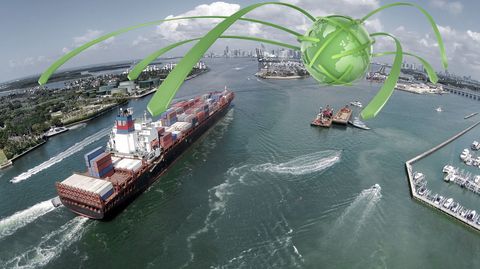The legal landscape surrounding free trade agreements (FTAs) has undergone significant evolution in recent years, with policymakers pursuing more ambitious and broader-ranging deals in order to foster closer cooperation between nations and facilitate easier trade.
However, as these new-generation FTAs evolve, so too must the regulatory processes governing their implementation - and it is in this context that a recent ruling from the European Court of Justice takes on particular significance.
Intended to clarify administrative issues surrounding the introduction of a new trade pact between the EU and Singapore, the reach of the ruling goes beyond that, and changes the way that future FTAs - including a potential post-Brexit deal with the UK - are negotiated and implemented.
The background
The ruling came in response to a request from the European Commission to clarify the steps the EU will need to take to ratify and conclude its new FTA with Singapore, negotiations for which were completed in October 2014.
Beyond its basic importance as a deal that strengthens European ties with a key Asian trading partner, the FTA is noteworthy for being one of the first new-generation bilateral deals whose scope goes beyond standard measures - such as the reduction of customs duties and non-tariff barriers in the field of trade in goods and services - to also include provisions on related matters such as intellectual property (IP) protection, investment, public procurement, competition and sustainable development.
These additions will allow for a more comprehensively integrated approach to regulation - but also raise the question of whether the EU itself would still have the jurisdiction to approve a deal of this expanded scope on its own, or whether it would require the parliamentary ratification of each member state.
The ruling
Although the European Commission and European Parliament had argued that the EU should be able to approve such a deal on its own, the Court of Justice has decided otherwise, stating that the deal can only be concluded by the EU and the member states acting together.
Explaining its decision, the court stated that the inclusion of provisions on non-direct foreign investment - or portfolio investments made without an intention to influence the management and control of an undertaking - as well as the regime governing dispute settlement between investors and states, meant that individual countries would need to sign off on the deal.
The EU, meanwhile, was deemed to retain exclusive competence on all other matters, including market access, direct investment, IP rights, anti-competitive activity, sustainable development and state-level dispute settlement.
The implications
The European Commission welcomed the clarification the ruling provides, with attentions now turning to the implications this decision will have on future trade agreements.
Theoretically, the ruling hands the EU control over the bulk of the FTA decision-making process, while assuaging the concerns of national governments worrying that modern trade deals could undermine sovereignty on a local level - particularly when it comes to the often controversial investor-state dispute settlement provisions of many of these pacts, which critics argue take power away from governments and hand it to corporations.
However, the fact that the EU will now need to seek national government approval of new-generation FTAs could slow down the implementation of these deals considerably, while creating a risk that the difficulties experienced by the Comprehensive Economic and Trade Agreement with Canada - which was almost scuppered by opposition from a single territory, the Belgian region of Wallonia - could become commonplace.
The ruling might also have problematic implications for the UK, which triggered Article 50 of the Lisbon Treaty in March 2017 to commence the process that will see the country leave the EU in two years' time. The British government is keen to have a new FTA in place with Europe by then to ensure that EU-UK trade links are maintained even after Brexit, so the Court of Justice's ruling is likely to make that timescale more difficult to achieve.
As such, the incoming British government may be put in a position where it has to choose between opting for a less fully-featured FTA that could be approved more rapidly by the EU alone, or pushing for a more comprehensive deal that may not be ratified by all the relevant national governments before the March 2019 deadline.






